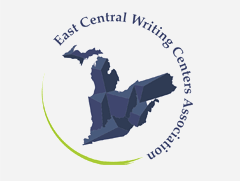Presentation/Proposal Title
What We Can Learn From Secondary School Writing Centers
Type of Presentation/Proposal
Special interest group/roundtable
Start Date
5-4-2019 11:00 AM
End Date
5-4-2019 12:00 PM
Keywords
Secondary School Writing Centers, Cross-Level Collaboration, Partnerships
Description
Most of the documented interactions between secondary and post-secondary writing centers tend to be situated in the context of “service learning.” In “service learning” contexts, the former is the primary beneficiary of the expertise and outreach of the latter, as college and university directors and consultants may train local middle and high school students to open their own writing centers (e.g., Hutchinson & Gillespie, 2015), provide supplemental tutoring support or enrichment services (e.g, Tinker, 2006), or engage teachers in professional development on postsecondary expectations for disciplinary writing (e.g., Blumner & Childers, 2011). While service-oriented frameworks can be useful and important in expanding teacher and student capacity and closing achievement and opportunity gaps (Eby, 1998), they often fail to account for substantial benefits accrued by postsecondary writing centers, their directors, and their consultants in their interactions with their secondary school counterparts. As secondary school writing centers continue to grow into powerful engines of scholarship and pedagogical innovation, radical sites of spirited inquiry, and hubs for social justice and activism, more substantive professional dialogue about how stakeholders in postsecondary writing centers learn and benefit from their secondary school counterparts is required.
To begin this dialogue, representatives from university writing centers, a secondary school writing center, and a professional writing center organization will contextualize how the work of middle and high school writing centers is pushing pedagogy and practice in writing centers writ large before breaking attendees into smaller hosted discussion groups for further collaborative learning.
What We Can Learn From Secondary School Writing Centers
M2265
Most of the documented interactions between secondary and post-secondary writing centers tend to be situated in the context of “service learning.” In “service learning” contexts, the former is the primary beneficiary of the expertise and outreach of the latter, as college and university directors and consultants may train local middle and high school students to open their own writing centers (e.g., Hutchinson & Gillespie, 2015), provide supplemental tutoring support or enrichment services (e.g, Tinker, 2006), or engage teachers in professional development on postsecondary expectations for disciplinary writing (e.g., Blumner & Childers, 2011). While service-oriented frameworks can be useful and important in expanding teacher and student capacity and closing achievement and opportunity gaps (Eby, 1998), they often fail to account for substantial benefits accrued by postsecondary writing centers, their directors, and their consultants in their interactions with their secondary school counterparts. As secondary school writing centers continue to grow into powerful engines of scholarship and pedagogical innovation, radical sites of spirited inquiry, and hubs for social justice and activism, more substantive professional dialogue about how stakeholders in postsecondary writing centers learn and benefit from their secondary school counterparts is required.
To begin this dialogue, representatives from university writing centers, a secondary school writing center, and a professional writing center organization will contextualize how the work of middle and high school writing centers is pushing pedagogy and practice in writing centers writ large before breaking attendees into smaller hosted discussion groups for further collaborative learning.



Comments
A room with the space and a configuration that allows for discussion groups would be beneficial for our presentation.